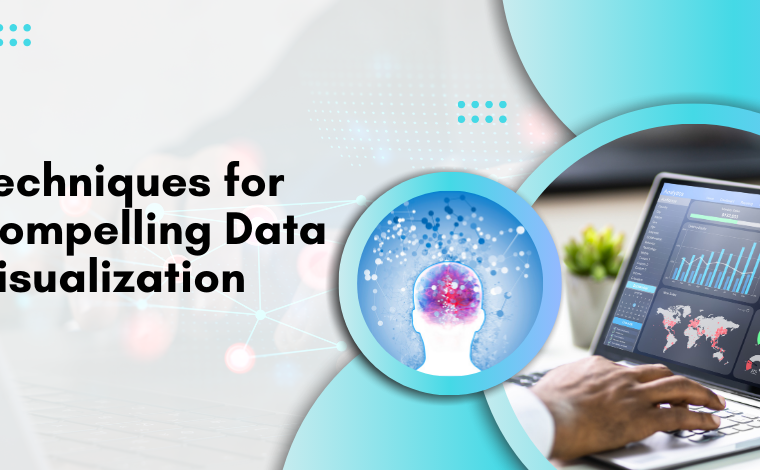Maximizing Efficiency and Unlocking Valuable Insights Through Big Data Management

Stay Informed With Our Weekly Newsletter
Receive crucial updates on the ever-evolving landscape of technology and innovation.
In today’s fast-paced, data-driven world, businesses need to be able to effectively manage and harness the power of big data to stay competitive and drive innovation.
Maximizing efficiency and unlocking valuable insights through big data management has become a crucial priority for organizations across industries.
We will explore the key concepts, strategies, and challenges associated with big data management, as well as the future trends shaping this dynamic field.
Understanding the power of big data

Before diving into the intricacies of big data management, it is essential to have a clear understanding of what big data actually entails.
In simple terms, big data refers to the vast amount of structured and unstructured data generated by various sources, including but not limited to social media platforms, sensors, and transactional systems.
The role of big data in today’s business landscape cannot be understated.
The sheer volume, velocity, and variety of data being generated present both opportunities and challenges for organizations. While big data provides immense potential for extracting valuable insights, it also requires a strategic approach to data management to fully utilize its power.
Quantity of information
When it comes to big data, the volume of information is staggering. Every day, billions of gigabytes of data are created and stored.
This data comes from a multitude of sources, such as social media platforms like Facebook, Tiktok, and Twitter, where millions of users share their thoughts and experiences.
Additionally, sensors embedded in various devices, from smartphones to smart home appliances, continuously collect data on user behavior and environmental conditions. Furthermore, transactional systems, such as online shopping platforms and banking systems, generate massive amounts of data with each interaction.
The velocity of information generated
Big data is not just about the quantity of information; it is also about the velocity at which it is generated.
Real-time data streams from social media updates, sensor readings, and online transactions flow in at an unprecedented rate.
This constant influx of data requires organizations to have the necessary infrastructure and capabilities to capture, process, and analyze it in near real-time to derive meaningful insights.
Unstructured data
Big data is not limited to structured data that can be easily organized and analyzed in traditional databases. It also includes unstructured data, such as text documents, images, videos, and audio files.
This unstructured data presents a unique challenge as it requires advanced techniques, such as natural language processing and image recognition, to extract valuable information from it.
Organizations need to employ sophisticated data processing tools and algorithms to make sense of this unstructured data and uncover hidden patterns and trends.
Driving innovation
The potential of big data goes beyond just extracting insights.
It can be leveraged to drive innovation and improve decision-making processes. By analyzing large volumes of data, organizations can identify customer preferences, market trends, and emerging patterns, enabling them to make data-driven decisions and stay ahead of the competition.
For example, retailers can use big data analytics to understand customer behavior and tailor their marketing campaigns accordingly, resulting in higher customer satisfaction and increased sales.
However, harnessing the power of big data is not without its challenges. The sheer size and complexity of big data require organizations to invest in robust data management systems and infrastructure.
They need to ensure data security, privacy, and compliance with regulatory requirements. Additionally, organizations must have the necessary skills and expertise to analyze and interpret the data to derive meaningful insights effectively.
Strategies for maximizing efficiency in big data management

Implementing data management best practices is critical to maximizing efficiency in handling big data. A robust data governance framework lays the foundation for ensuring data quality, consistency, and security throughout the data lifecycle.
Establishing clear ownership, roles, and responsibilities is essential to drive accountability and streamline data management processes.
Leveraging automation
Leveraging automation is another key strategy for efficient big data management.
With the increasing volume and complexity of data, manual processes are no longer sufficient. Automation tools and technologies can help streamline data integration, data cleansing, and data transformation tasks, allowing organizations to focus on deriving insights rather than getting bogged down in tedious operations.
Scalable infrastructure
Adopting a scalable infrastructure is also crucial for efficient big data management. As the amount of data continues to grow exponentially, organizations need to have a flexible and scalable infrastructure that can handle the ever-increasing data volume.
Cloud computing platforms, such as Amazon Web Services (AWS) and Microsoft Azure, offer scalable storage and processing capabilities, enabling organizations to manage and analyze big data efficiently.
Advanced analytics techniques
In addition to infrastructure, implementing advanced analytics techniques can significantly enhance efficiency in big data management. By leveraging machine learning algorithms, organizations can automate the process of extracting insights from large datasets.
These algorithms can identify patterns, anomalies, and trends within the data, enabling organizations to make data-driven decisions and optimize their operations.
Data security
Data security is also a critical aspect of efficient big data management. With the increasing number of cyber threats and data breaches, organizations must implement robust security measures to protect their data assets.
This includes implementing encryption techniques, access controls, and regular security audits to ensure the confidentiality, integrity, and availability of data.
Data-driven culture
Establishing a data-driven culture within the organization is essential for efficient big data management. This involves fostering a mindset where data is seen as a valuable asset and decisions are based on data-driven insights.
By promoting data literacy and providing training on data analysis tools and techniques, organizations can empower their employees to make informed decisions and drive efficiency in data management.
Unlocking valuable insights from big data

While managing big data efficiently is important, ultimately, the goal is to extract valuable insights that can drive informed decision-making. Data analysis techniques play a crucial role in this process.
Advanced analytics, such as predictive modeling, machine learning, and natural language processing, enables organizations to uncover patterns, trends, and correlations in the vast sea of data.
Case studies of insight-driven businesses highlight the tangible value that can be derived from effective big data management.
From targeted marketing campaigns to personalized customer experiences and operational efficiency improvements, organizations that embrace data-driven decision-making gain a competitive edge in today’s crowded marketplace.
Overcoming challenges in big data management
While the benefits of big data management are abundant, organizations must also navigate several challenges to maximize their potential. Data privacy and security concerns are among the top priorities for organizations handling big data.
Ensuring compliance with regulations and establishing robust data protection measures are essential to safeguard sensitive information.
Another critical challenge is maintaining data quality and accuracy.
With the sheer volume and variety of data, organizations must invest in data cleaning and validation processes to ensure that the insights derived from big data analysis are reliable and trustworthy. Data governance practices, data integration technologies, and regular data audits can help mitigate data quality issues.
The future of big data management

The field of big data management is constantly evolving, driven by emerging technologies and trends. Artificial intelligence (AI) and machine learning (ML) are revolutionizing the way organizations handle big data.
This data analysis technology enables anomaly detection, and predictive modeling, empowering organizations to make real-time decisions based on data-driven insights.
Other emerging trends in big data management include the adoption of cloud-based storage and computing solutions, which offer scalability, flexibility, and cost-effectiveness.
Additionally, the integration of big data with Internet of Things (IoT) devices and edge computing promises to generate real-time insights and facilitate rapid decision-making across industries.
Conclusion
Maximizing efficiency and unlocking valuable insights through big data management is a strategic imperative for organizations in today’s data-driven world.
By understanding the power of big data, implementing efficient data management strategies, unlocking insights, and addressing associated challenges, businesses can harness the full potential of big data to drive innovation, enhance decision-making, and gain a competitive advantage in their respective markets.
If you’re ready to turn your organization into a data-driven powerhouse and unlock valuable insights from your big data, our team at Institute Data can help.
We specialize in corporate data solutions, helping businesses harness the power of their data effectively and efficiently.
You can learn more about our corporate services by clicking this link.





